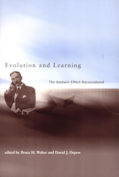Chapters in the book’s first part – by Steven Frautschi, David Layser, and Dilip Kondoputi – explore the application of the second law of thermodynamics to physical evolution and the origins of life. Those in the second part – by Lionel G. Harrison, Lionel Johnson, Eric D. Schneider, and Jeffrey S. Wicken – take up the thermodynamics of ecology and evolution; Johnson and Wicken criticize neoDarwinian orthodoxy and present alternative theories relating thermodynamics to evolutionary ecology. In the book’s third section, E. O. Wiley defends the theory that phylogenetic evolution may be predicted from a general version of the second law reformulated in terms of information theory, and Daniel R. Brooks, D. David Cumming, and Paul H. LeBlond also defend that controversial theory. The book concludes with a series of essays that evaluate these contributions and point out their implications for biology, philosophy, and the social sciences.

